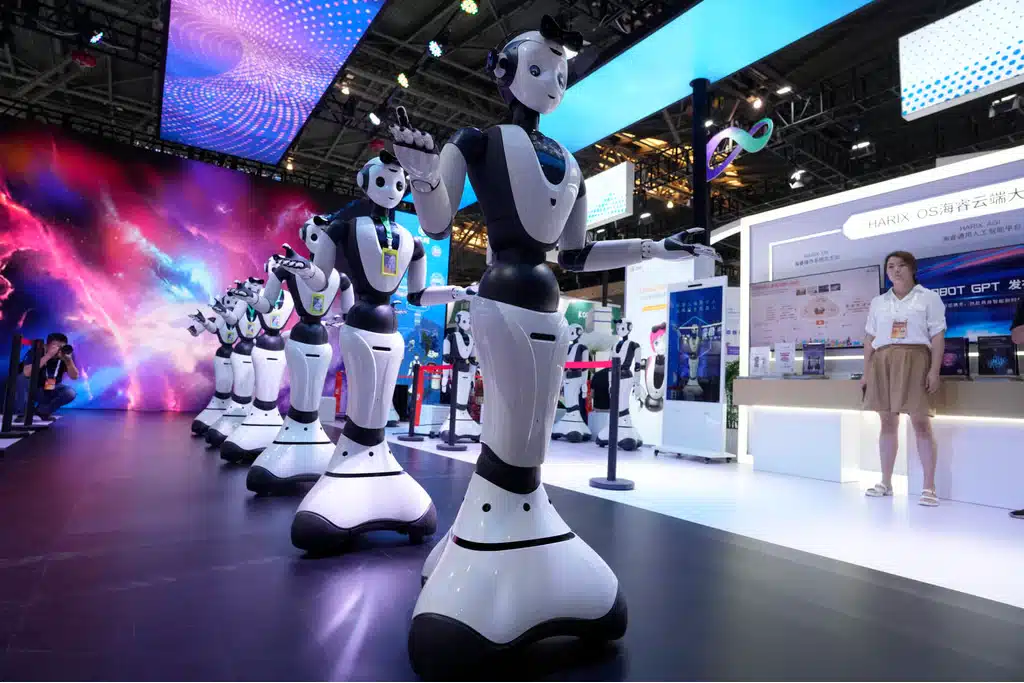Shanghai, July 25 – A wave of innovation is sweeping through Shanghai this weekend as over 800 companies gather for one of the world’s largest artificial intelligence conferences. Despite facing ongoing U.S. sanctions, China’s determination to lead the global AI race remains evident.
This year’s World AI Conference brings together tech giants like Huawei, Alibaba, and Tencent, alongside international names including Tesla, Amazon, and Google’s parent company, Alphabet. The two-day event showcases China’s resilience and rising capability in a field shaped by global competition and geopolitical strain.
🇨🇳 China Pushes for AI Self-Reliance
Premier Li Qiang is expected to open the conference, underlining how AI is a national strategic priority. China aims to become the world’s AI leader by 2030, focusing on innovation and reducing reliance on foreign technology—especially in semiconductors and advanced computing.
U.S. sanctions, first introduced during Donald Trump’s presidency, continue to restrict China’s access to advanced AI chips and manufacturing equipment. These measures were introduced to prevent the use of AI for potential military applications.
Startups and Giants Alike Show Progress
While China’s tech giants remain in the spotlight, emerging startups are generating serious buzz. Notably, DeepSeek, an AI firm based in China, is gaining international recognition for producing large-scale language models that rival U.S. competitors at significantly lower costs.
Even Nvidia’s CEO, Jensen Huang, recently praised the capabilities of models built by DeepSeek, Alibaba, and Tencent—calling them “world-class” during a speech in Beijing.
Key Highlights from the 2025 AI Expo
Organizers of the conference report the following lineup:
- 800+ tech companies participating
- Over 3,000 new AI products on display
- 40 large language models (LLMs) being demonstrated
- 50 smart devices powered by AI
- 60 intelligent robots, including innovations by humanoid robot maker Unitree
This reflects not just scale but also the diversity of applications, from automation to robotics and cloud computing.
Global Participation Despite Tensions
Although U.S. sanctions remain in place, American companies like Tesla and Amazon are present at the conference—indicating that AI development remains a shared interest globally, despite policy differences.
China’s effort to maintain technological progress under pressure sends a clear message: it’s doubling down on innovation, not backing off.
Conclusion
The Shanghai AI summit isn’t just a tech exhibition—it’s a statement of China’s direction. In the face of U.S. export restrictions, China’s tech ecosystem is pushing forward, with homegrown models, industry support, and global recognition.
As the AI race intensifies, Shanghai 2025 may be remembered as a milestone moment for China’s digital future.


